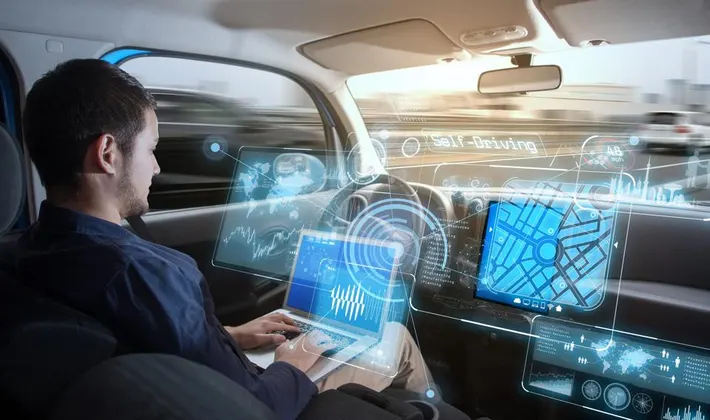In recent years, the automotive industry has experienced a remarkable transformation, and at the heart of this evolution lies the integration of artificial intelligence (AI) into car technology. From self-driving cars to advanced safety features, AI is reshaping the way we perceive and interact with our vehicles. In this blog post, we’ll delve into the various aspects of the role played by artificial intelligence in the realm of car technology.
Autonomous Driving: A Revolution in Motion
In the automotive sector, AI has ushered in significant advancements, with one noteworthy breakthrough being the development of autonomous or self-driving vehicles. These cutting-edge vehicles leverage AI algorithms, seamlessly integrated with state-of-the-art sensors and cameras, enabling cars to navigate through traffic, make informed decisions, and adeptly adapt to changing road conditions. This transformative technology not only enhances the convenience for drivers but also holds immense potential to revolutionize transportation as we know it. By reducing accidents and improving traffic flow, autonomous vehicles are poised to make a lasting impact on the automotive landscape. In this dynamic context, initiatives such as Cash for Scrap Cars Brisbane align with the changing tide of the industry, promoting sustainability and incentivizing the transition to newer, technologically advanced vehicles.
Enhanced Safety Features
AI’s influence extends beyond self-driving capabilities to enhance safety features in traditional cars. Machine learning algorithms analyze data from various sources, such as cameras and radar, to detect potential hazards and alert drivers in real-time. This proactive approach significantly reduces the risk of accidents and enhances overall road safety.
Predictive Maintenance: Keeping Cars on the Road
Artificial intelligence is playing a pivotal role in predictive maintenance, a game-changer for both car owners and manufacturers. AI algorithms analyze data from various sensors within the vehicle to predict when components are likely to fail. This enables proactive maintenance, preventing breakdowns and ensuring optimal vehicle performance.
Personalized Driving Experience
Modern cars equipped with AI technology can personalize the driving experience for each individual. Machine learning algorithms analyze driving patterns, preferences, and habits to adjust settings such as seat position, climate control, and music preferences. This level of personalization ensures a comfortable and enjoyable driving experience for every user.
Traffic Management and Optimization
AI is not just confined to individual vehicles; it also contributes to traffic management and optimization on a broader scale. Smart traffic systems, powered by AI algorithms, can analyze traffic patterns, predict congestion, and optimize traffic signal timings. This results in more efficient traffic flow, reducing travel time and fuel consumption.
Voice Recognition and Natural Language Processing
AI has made significant strides in improving the human-machine interface within cars. Voice recognition and natural language processing technologies enable drivers to control various functions using voice commands. This not only enhances safety by reducing distractions but also provides a more intuitive and user-friendly interaction.
Fuel Efficiency and Emissions Reduction
AI algorithms are being employed to optimize fuel efficiency and reduce emissions in traditional combustion engine vehicles. By analyzing driving conditions and adapting engine parameters in real-time, AI contributes to a greener and more sustainable driving experience.
Conclusion
As we embrace the era of smart technology, the integration of artificial intelligence into car technology continues to redefine our relationship with autonomous vehicles. From autonomous driving to personalized experiences and enhanced safety features, AI is steering the automotive industry towards a future of innovation and efficiency. As these technologies become more widespread, we can expect further improvements in road safety, environmental impact, and overall driving experience. The journey towards intelligent, connected, and autonomous vehicles is well underway, and the role of artificial intelligence is at the forefront of this transformative evolution.




